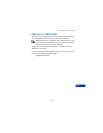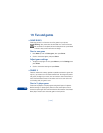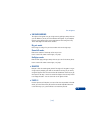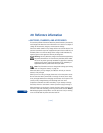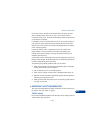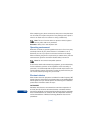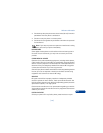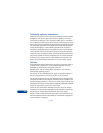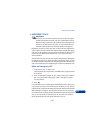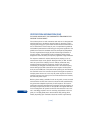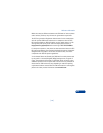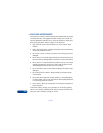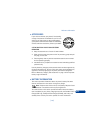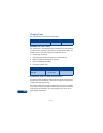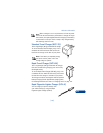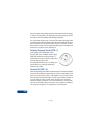
[ 139 ]
Reference information
20
• EMERGENCY CALLS
IMPORTANT!
This phone, like any wireless phone, operates using radio signals,
wireless and landline networks, and user-programmed functions.
Because of this, connections in all conditions cannot be guaranteed.
Therefore, you should
never
rely solely on any wireless phone for
essential communications (for example, medical emergencies).
Remember, to make or receive any calls, the phone must be switched on
and be used in a service area that has adequate signal strength. Emergency
calls may not be possible on all wireless phone networks or when certain
network services and/or phone features are in use. Check with local
service providers.
Always make sure that your phone is properly charged before attempting
any emergency calls. If you allow your battery to become empty, you will
be unable to receive or make calls, including emergency calls. You must then
wait a few minutes after the charging begins to place any emergency calls.
Make an Emergency Call
1
If the phone is not on, switch it on.
Some networks may require that a valid SIM card is properly inserted
in the phone.
2
Enter the emergency number for your present location (for example,
911 or any other official emergency number—emergency numbers
vary by location).
3
Press .
If certain features are in use (Keyguard, fixed dialing, restrict calls, and so
on), you may first need to turn those features off before you can make an
emergency call. Consult this document and your local cellular service provider.
When making an emergency call, remember to give all of the necessary
information as accurately as possible. Remember that your wireless phone
may be the only means of communication at the scene of an accident—
do not
terminate the call until given permission to do so.



